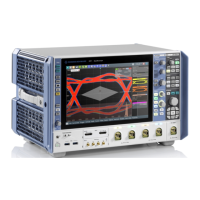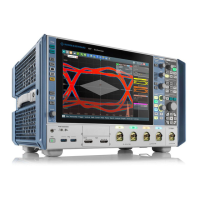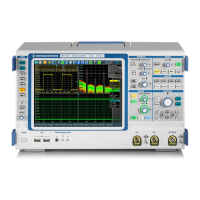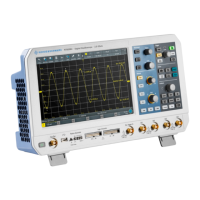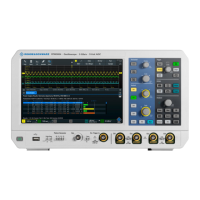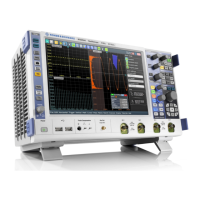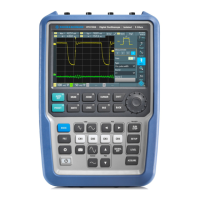Protocol analysis
R&S
®
RTE
821User Manual 1326.1032.02 ─ 20
SYNC PID Frame number CRC5 EOP
●
Data packets have the following format:
SYNC PID Data CRC16 EOP
●
Handshake packets have the following format:
SYNC PID EOP
●
SPLIT packets have the following format:
SYNC PID ADDR SC PORT S E ET CRC5 EOP
Trigger possibilities
Signals on the input channels CH1 - CH4 of the R&S RTE can be triggered by the
option R&S RTE-K60. The following trigger types are available:
●
ANY Packet - Packet Sync: Triggering on the first rising slope after transmission of
the packet Sync. Various lengths according to standard (in USB 2.0: 32 bit)
●
Any token, OUT, IN, SOF, SETUP, AND-ing with user defined PID check, address,
endpoint, CRC5: For OUT, IN, SETUP, the endpoint and CRC5 follow from the bit
order, therefore such patterns can be recognized.
●
Data Selection: DATA0, DATA1, DATA2, MDATA, (for USB 1.x only: AND-ing with
user defined PID check, payload and CRC values)
●
Handshake Packet Setup: Triggering on handshake packet, trigger with specific
settings: ACK, NAK, NYET, STALL or ERR handshake packet
●
Protocol Error: Triggering on PID/check error, CRC5 error, CRC16 (for USB 1.x
only), frame length error (for USB 1.x only)
●
Bus Event: Triggering on reset, resume, or suspend
13.16.2 USB 2.0 configuration
If you need information on how to get started with configuring the USB 2.0 setup, see
Chapter 13.16.2.2, "Configuring USB signals", on page 824. Otherwise proceed with
the configuration settings.
13.16.2.1 USB 2.0 configuration settings
Access: [PROTOCOL] > "Decode" tab > "Protocol" = USB 2.0
Make sure that the tab of the correct serial bus is selected.
USB (option R&S
RTE-K60)
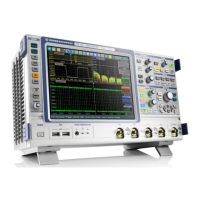
